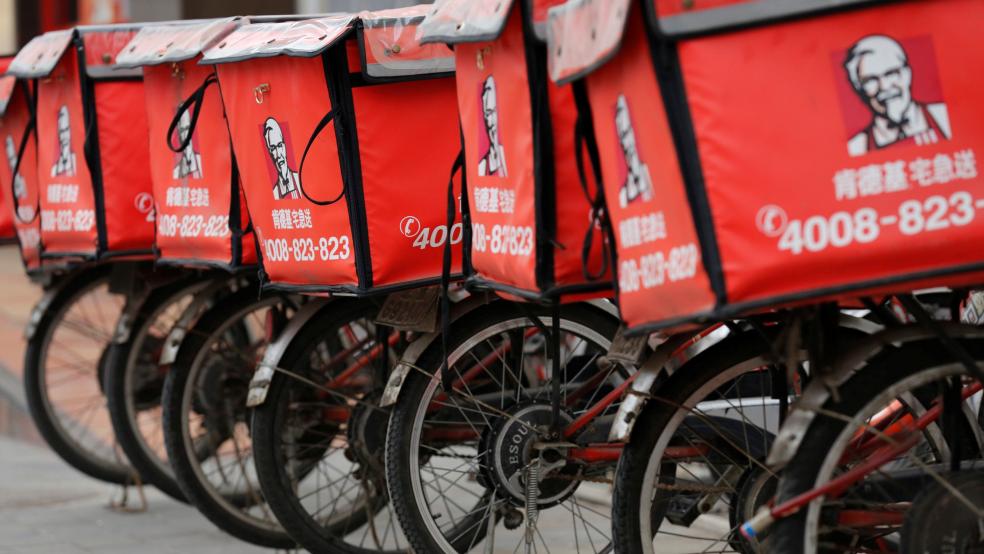LOS ANGELES (Reuters) - Yum Brands Inc said on Thursday its KFC and Pizza Hut businesses in China suffered no lasting brand damage after political tensions over the South China Sea caused an unexpected third-quarter sales drop in that country.The company, which will spin off its China business on Oct. 31, said the last quarter started well there, but its restaurants were hit by anti-U.S. protests after an international court in July rejected China's claim to historic rights in the South China Sea. Yum Brands on Wednesday reported a surprise 1 percent drop in third-quarter sales at China restaurants open at least one year. The protests reduced the measure by as much as 500 basis points, but the impact has largely eased, executives said on a conference call on Thursday. Analysts polled by research firm Consensus Metrix had expected a 4.1 percent sales gain for the China unit, which is Yum's top profit generator.For the China unit's current quarter that started on Sept. 1, same-store sales so far are down "modestly" but are expected to be positive for the balance of the quarter, Yum Brands Chief Executive Greg Creed said.Company research indicated that the protests inflicted "no damage whatsoever to the brand," Micky Pant, CEO of Yum Restaurants China, said. An international tribunal in the Hague said in July it found no legal basis for China's claim to most of the South China Sea. This prompted local media to call the court a "puppet" of external forces and accuse the United States of turning the Philippines, which filed the case, against China.Several brands became lightning rods for short-lived anti-U.S. protests and boycott calls, including Apple Inc and KFC, which has more than 5,000 restaurants across China.Some analysts questioned the extent of the impact of the sporadic protests in China, where Yum is also battling tough competition, lingering effects of food safety missteps and a weak economy."We estimate sales dropped 15 to 25 percent in some of the cities because a lot of the protesters were looking for a big American brand to attack, to protest against," said Shaun Rein, managing director of Shanghai-based China Market Research Group. "So they did have to shut a lot of stores in Northeast China."The big challenge for them is, will there be lingering anti-American sentiment?"Yum's China business will begin trading as a separate company on Nov. 1 on the New York Stock Exchange under the ticker symbol "YUMC."Chinese investment firm Primavera Capital and Ant Financial, an affiliate of Alibaba Group Holding Ltd , said in September they would buy a stake in Yum China for $460 million. Creed said Yum China's strategic partnership with Primavera and Ant Financial will give the newly independent company a competitive advantage. "Both are well-respected China institutions that are ideal partners for Yum China as a standalone public company operating in China," Creed said.Yum shares were down 1.6 percent at $87.22 on Thursday afternoon on the New York Stock Exchange. (Reporting by Lisa Baertlein in Los Angeles; Editing by Matthew Lewis)

